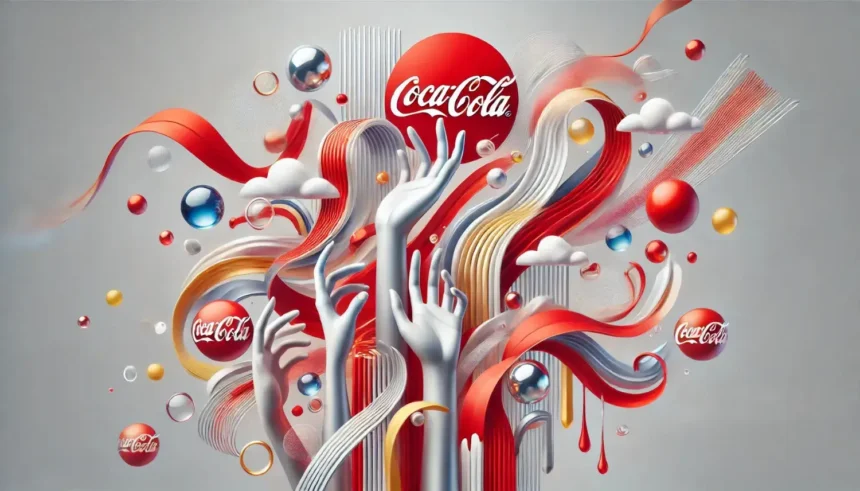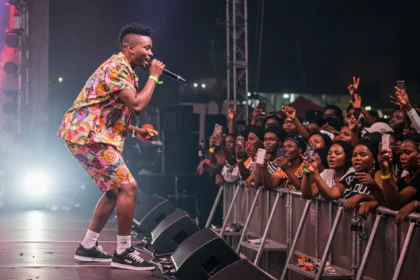In December 2024, the world’s most iconic beverage brand, Coca-Cola, made headlines again. But this time, it wasn’t about a new flavour or a groundbreaking sponsorship deal. Instead, it was about algorithms and creativity – the company’s bold move into AI-generated branding content. What emerged was a blend of technology and tradition that has ignited conversations in global boardrooms – African marketing circles included.
Coca-Cola’s “Create Real Magic” platform, powered by OpenAI and Bain & Company, allowed users around the world to generate custom digital holiday cards using the brand’s signature assets – the red can, the polar bear, Santa Claus, and the familiar script logo. The brand also rolled out short AI-generated holiday ads using tools like Runway and Luma’s Dream Machine. These campaigns – experimental, bold, and disruptive – marked a turning point for modern marketing. But beyond the glitz and innovation, a question lingers: What does Coca-Cola’s AI branding play mean for African brands navigating an increasingly digital consumer world?
From Atlanta to Lagos: Why African Brands Should Care
According to Yanju Adegboye, a Lagos based Brand Strategist, Coca-Cola’s AI branding efforts should be a wake-up call. “Coca-Cola isn’t just playing with toys. They are shaping the future of storytelling and consumer engagement. They are filtrating a new model of brand communication – from storytelling to storymaking. The African market should take note – the same AI tools are available to us, and the same emotional impact can be created with them.”
African consumers are mobile-first, young, and digitally expressive. A 2023 GSMA report showed over 495 million mobile internet users in sub-Saharan Africa – and the number continues to rise. These are digital natives who value speed, creativity, and interactivity in brand messaging. That’s where AI comes in.
The Shift from Storytelling to Storymaking
Traditional advertising tells a story. AI branding, however, allows brands to create tools so consumers can co-create stories. That’s the difference Coca-Cola is exploring. Their “Create Real Magic” platform lets consumers play with brand assets – a clear pivot toward participatory branding.
For African brands, this is an opportunity.
“To fully understand the power of AI in storymaking let us envisage a situation where a Nigerian fashion brand creates a digital campaign to get fans to design their own digital Asoke outfits using AI and then share it on social media. Or a South African music label using AI tools to let fans remix a track or make cover art. This is what’s coming,” says Emmanuel Emeh, a creative technologist and founder of AbiiNem Academy.
AI storytelling enables cultural participation. African brands – deeply rooted in oral traditions and community storytelling – are uniquely positioned to win in this space. But in the storymaking is the renaissance of African community. The philosophical spirit of Ubuntu comes to life to reignite the ontology of the African being – “I am, because we are.” The use of AI to support brand storymaking by African brands is the new brand-marketing frontier.
Bridging Creativity and Technology
Of course, the big question remains: Do African businesses have the technical capacity to execute such AI-driven campaigns? The answer is both yes and no. The AI tools Coca-Cola used – Runway, Midjourney, Luma AI, and ChatGPT – are all globally accessible. What’s often missing is training, creative courage, and integration into strategy.
Abiola Kabiru, a Nigerian business technology and digital marketing expert with Modo Ante, believes this is where African agencies must evolve. “We need digital creatives who can think beyond posts and hashtags. AI gives us the chance to create immersive campaigns without Hollywood budgets. But we must train talent and shift from traditional campaign thinking to adaptive storytelling and storymaking.”
Kabiru who applies technology to support brands and businesses advised Nigerian brands and organisations not to shy away from trying. According to him, “they can start small by experimenting in safe spaces. They can use tools like Canva AI, ChatGPT, or Adobe Firefly to co-create marketing materials. Let your team experiment and fail forward. They should invest in AI literacy for creatives. There are free resources on Coursera, edX, and YouTube. They should also encourage their teams to learn prompt engineering, visual AI storytelling, and generative video tools. Integrate AI into Campaigns. Don’t just use AI for design. Embed it into your consumer experience – from personalized content to interactive brand storytelling and storymaking. They should not forget to respect data and ethics by using AI responsibly. Get user consent. Respect copyrights. Don’t exploit consumer data. AI marketing must be transparent and ethical – or risk backlash,” he concluded.
Several African agencies are already experimenting. In 2023, news reports indicate that South African agency Machine partnered with DALL·E to co-create AI art for a local tourism brand. It was also reported that in Kenya, an experimental campaign by Safaricom used AI to generate real-time consumer feedback responses during a product launch. These early use-cases prove that innovation is not just possible – it’s already happening.
The Human Factor: What AI Still Can’t Do
Despite the fanfare, Coca-Cola’s AI branding campaign received mixed reviews. Some critics felt the ads lacked emotional warmth. Others feared AI might replace human creatives. But industry veterans argue that AI is just a tool – not a replacement. “The essence of branding is still human connection, emotional nuances, and voice. AI can help you scale your ideas, test visual possibilities, or personalise user experiences. But the strategy, insight, emotion – that’s still the job of human minds,” says Prof. Issa Momoh, a Media Economist at the Salem University, Lokoja, Nigeria.
African storytelling is rich, textured, and community-oriented. No algorithm can replicate the spiritual significance of a Yoruba chant, the rhythm of a Hausa proverb, the rich proverb of the Igbo, or the satire in Pidgin. What AI offers is amplification – not replacement.
Final Thoughts: A New Era of Branding
Coca-Cola’s AI branding play is more than a campaign – it’s a signal. A signal that branding is entering a new phase where creativity meets code, and consumers are collaborators. For African brands, this presents a unique chance to leapfrog legacy systems and build engaging, culturally rich, and future-forward brand identities.
But technology alone won’t do it. It must be guided by human creativity, cultural intelligence, and strategic intent. According to Coca-Cola’s Global Chief Creative Officer, Pratik Thakar, this is not about replacing creative teams, it is about expanding imagination, breaking time constraints, and inspiring new ways to engage fans.
If African brands embrace that same mindset – bold, imaginative, and open to experimentation – the next global branding disruption might just start in Nairobi, Accra, or Lagos.







